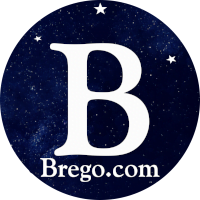 Web3 vs. Wall Street: Will Blockchain Disrupt the Mortgage Giants?
Web3 vs. Wall Street: Will Blockchain Disrupt the Mortgage Giants?
Syndicated By Web3.Mortgage
The traditional mortgage process is a labyrinth – a maze of paperwork, lengthy approvals, and often hidden fees. It’s no wonder that many, especially first-time buyers, feel discouraged and excluded. Enter Web3, a revolutionary movement fueled by blockchain technology and decentralized finance (DeFi). But can Web3 technology crack the dominance of Wall Street giants like Fannie Mae and Freddie Mac, and reshape the mortgage industry?
A Tale of Two Systems: Wall Street vs. Web3
The current mortgage system is heavily influenced by Wall Street institutions. These institutions play a crucial role in financing mortgages, but the process can be slow, opaque, and prioritize the interests of lenders over borrowers.
- Centralized Control: Wall Street giants control a significant portion of the mortgage market, limiting competition and potentially inflating costs for borrowers.
- Time-Consuming Bureaucracy: The traditional mortgage process can take weeks or even months to complete, riddled with paperwork and bureaucratic hurdles.
- Lack of Transparency: Borrowers often navigate a complex web of fees and terms, making it difficult to compare offers and understand the true cost of a mortgage.
Web3, on the other hand, proposes a decentralized alternative. By leveraging blockchain technology and DeFi protocols, Web3 offers a vision for a more streamlined, transparent, and borrower-centric mortgage system.
Web3’s Potential to Revolutionize Mortgages
Here’s how Web3 could potentially disrupt the mortgage industry:
- Streamlined Applications: Smart contracts could automate loan applications and underwriting processes, potentially reducing approval times and paperwork.
- Increased Transparency: Blockchain technology creates an immutable record of all loan transactions, providing greater transparency for both borrowers and lenders.
- Fractional Ownership: NFTs could enable fractional ownership of mortgages, allowing individuals to pool resources for down payments and potentially increasing access to homeownership.
- Decentralized Lending: Decentralized Autonomous Organizations (DAOs) could offer alternative lending models, potentially bypassing traditional gatekeepers and reducing reliance on Wall Street.
This potential for disruption is attracting the attention of both startups and established players in the financial sector. Several companies are exploring how to leverage Web3 technologies to create new mortgage platforms and services.
Challenges and the Road Ahead
While Web3 offers a promising vision, there are significant challenges to overcome before it becomes a mainstream reality in the mortgage industry:
Regulatory Uncertainty: The regulatory landscape surrounding DeFi and Web3 mortgages is still evolving. Clear regulations are needed to ensure consumer protection, prevent fraud, and maintain financial stability.
Security Concerns: Blockchain technology is generally secure, but vulnerabilities still exist. Robust security measures are crucial to protect borrowers and lenders from hacking and financial losses.
Regulatory Uncertainty: The regulatory landscape surrounding DeFi and Web3 mortgages is still evolving. Clear regulations are needed to ensure consumer protection, prevent fraud, and maintain financial stability.
Security Concerns: Blockchain technology is generally secure, but vulnerabilities still exist. Robust security measures are crucial to protect borrowers and lenders from hacking and financial losses.
- Cryptocurrency Volatility: The volatility of the cryptocurrency market poses a risk for both borrowers and lenders in Web3 mortgages. Fluctuations in crypto prices could impact loan values and repayment terms.
- Digital Divide: Limited access to technology and the internet could exacerbate existing inequalities and hinder participation in Web3 mortgages for certain communities.
- Financial Literacy: Understanding DeFi and Web3 concepts can be complex. Educational initiatives are crucial to empower individuals to make informed decisions and avoid potential scams.
The Takeaway: A Brave New World for Mortgages?
The potential impact of Web3 on the mortgage industry remains to be seen. While challenges abound, the potential benefits for a more efficient, transparent, and inclusive housing market are undeniable. As technology advances and regulations evolve, Web3 could become a game-changer, empowering individuals to achieve their dream of homeownership and potentially reshape the power dynamics within the mortgage landscape.
However, collaboration between various stakeholders – technology developers, financial institutions, community organizations, and regulators – is essential. They must work together to overcome the challenges, establish clear guidelines, and ensure responsible innovation that benefits all participants in the housing market.
Keywords: Web3 mortgages, DeFi, blockchain, mortgage industry, Wall Street, disruption, transparency, fractional ownership, decentralized lending, regulation, security, cryptocurrency volatility, digital divide, financial literacy
SEO Meta Description Excerpt (150 characters): Can Web3 technology challenge Wall Street’s dominance in the mortgage industry? Explore the potential of Web3 to revolutionize mortgages with greater efficiency, transparency, and accessibility. But will regulations, security, and market volatility hold it back?
Compelling Header Image Description: Imagine a graphic depicting a handshake between two figures on opposite sides of a scale. One figure represents a traditional lender (suit and tie), the other a borrower (jeans and t-shirt). A decentralized network symbol (glowing lines) sits above the scale, signifying the potential for Web3 to disrupt the current balance of power in the mortgage industry.

